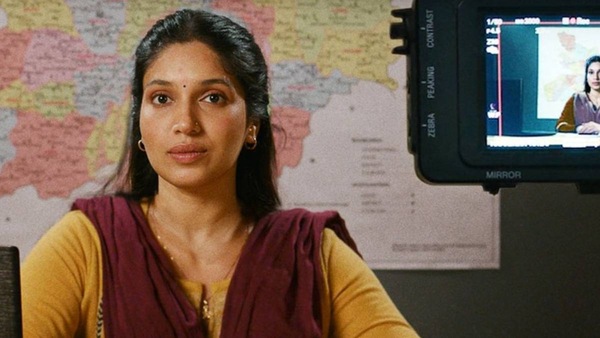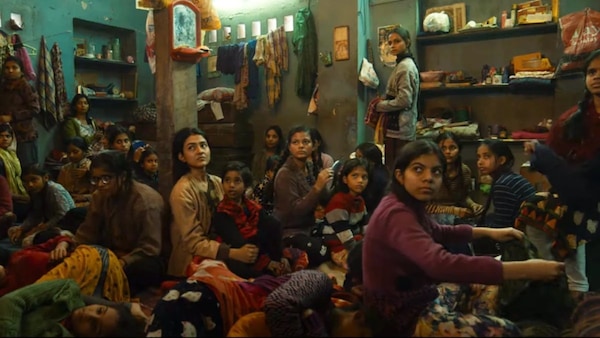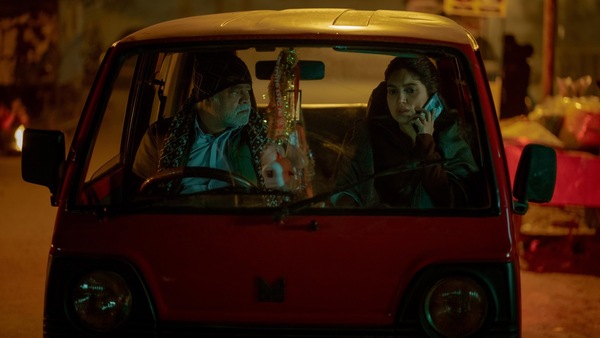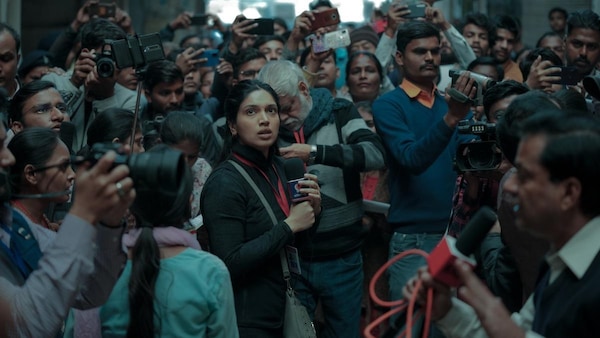Bhakshak: The Bhumi Pednekar Film Asks All The Right Questions
This is #CriticalMargin, where Ishita Sengupta gets contemplative over new Hindi films and shows. Here: Bhakshak, on Netflix.

Last Updated: 12.01 PM, Feb 09, 2024
PULKIT’s Bhakshak, the latest film produced by Red Chillies Entertainment, opens with a disclaimer: inspired by certain real events. This line has become a constant appendage to Hindi films of late. Most outings open with this caveat and then use that as a shield — and weapon — to amplify falsehood in the name of fiction. Bhakshak, however, is rooted to such subliminal truth that even without the specific mention at the beginning, its inspiration from real-life incidents is evident and explanatory.
Not least because the premise, centering around child abuse in a state-funded NGO, has happened in reality and publicly documented. Back in 2018, more than 30 children in a shelter home in Muzaffarpur, Bihar, were reported to be sexually abused. The man who headed the organisation had tremendous political clout and ran a newspaper, thus delaying the discovery and the proceedings. That the case brought to light the involvement of several government officials only added to the complexity of it.

Pulkit and Jyotsana Nath, the writers of Bhakshak, take this as the setting and weave in the current social reality by presenting the story from the perspective of a journalist whose righteousness has rendered her a life of solitude. Vaishali Singh (a compelling Bhumi Pednekar) lives in Patna with her husband, and works independently. Her makeshift office is a sparse room that also accommodates a kitchen. Her show barely has any viewership. But her decision to work alone is informed by her intent of speaking truth to power.
The leading newspapers and channels are mostly filled with government-funded advertisements, and the people running them are also involved in abusing children. This explains why none of the big media houses care to raise questions when a 2018 audit report states that children living in a shelter home in Munawwarpur are being sexually abused. Vaishali chances upon this report and starts asking questions, aided by her sole colleague, cameraman Bhaskar Sinha (a terrific Sanjay Mishra).

In more ways than one, the ethos of Bhakshak is similar to Shanker Raman’s Love Hostel (2022), the last film bankrolled by Red Chillies, which portrayed love jihad and honour killing. In both cases, the outings depict actualities that speak more of the realism of the times we are living in than the specific reality of an incident. Take for instance the subtle but effective way in which Bhakshak depicts the nexus between corrupt politicians, complying media and the complacent public. When Vaishali starts calling out local politician Bansi Sahu (an underutilised Aditya Srivastava) who runs the shelter home in Munawwarpur, both her brother-in-law — a lawyer, and father to a young girl — and her husband, discourage her from speaking up. Their argument is simple: it is not happening with anyone they know, why should they care? Similarly, the tendency of the media to be mouthpieces of the government prolongs the mistreatment of the children. It takes an independent journalist with much to lose and no stake in the game to step in and demand questions.

In Hindi films, few figures are as abused in their depictions as journalists. They are portrayed as an aesthetic (save Hansal Mehta’s Scoop in recent times), with their Fabindia kurta and a cigarette in hand, or in excess. They are written as annoying creatures who flit in the extremes — they are either morally bankrupt or self-righteous to the point of self-destruction. Bhakshak sees its protagonist as a person who has a life beyond her profession and the way she approaches her profession is coloured by own sense of morality. For instance, scenes of Vaishali chasing the story are juxtaposed with her coming home and cooking for her husband. Amidst family members, her credentials and bravery are reduced to her identity as a married woman who is yet to conceive.

But Bhakshak also unravels attuned to what journalism entails — to not pass judgement but to seek answers; to not reiterate power but to challenge it. The film skillfully hints at it without overplaying its hand. When Vaishali is questioned for doing her job, she retorts saying, “I am a reporter and if I see something which is not correct then I will follow up.” More crucially, Bhakshak recognises that at its heart journalism is a call for empathy. To a large extent, Vaishali’s character is designed in the mould of Ravish Kumar, an independent journalist who, unlike his colleagues, never exalts his viewers. He calls them out and places the blame of the social rot we are undergoing on their shoulders. The film concludes with a similar, galvanising monologue where Vaishali looks at the camera, and by extension, at us and says if we do not speak up against wrongdoing, how can we call ourselves human beings?

There is a laudable clear-sightedness in Pulkit’s work which can easily be credited as brave in today’s lexicon. The signs are all there. The political leaders involved in the misdoing are presented in a certain way. Their rooms are filled with images of gods, as the filmmaker craftily underlines the link between weaponisation of religion and domination of power.
The astuteness only becomes foggy when it comes to crafting other characters. Except Vaishali and Bhaskar, the rest stick out as one-note villains. Ditto for Vaishali’s husband who has an unearned change of heart that appears force-fitted for a narrative inflection. The most woeful upshot of this is that gifted actors like Aditya Srivastava and Sai Tamhankar feel wasted.
The shorthands don’t help. For a film that pushes several buttons, it ends up concluding as wishful thinking, wrapped in convenience. Things fall neatly into place and everyone comes out unscathed. One needs to probe only a little to deduce that the reality is far from this. Journalists who do their jobs are at the risk of losing their lives and the rot in the system runs deep. Bhakshak side steps these to hold us accountable. It feels hasty in approach but not erroneous in intent. There is no lie in Bhakshak’s fire.
The views expressed in this column are those of the author and do not necessarily reflect the official policy or position of OTTplay. The author is solely responsible for any claims arising out of the content of this column.

